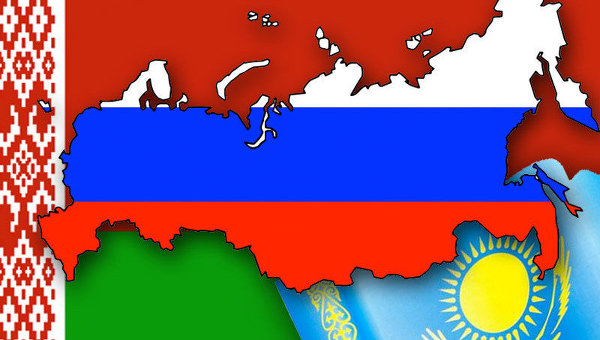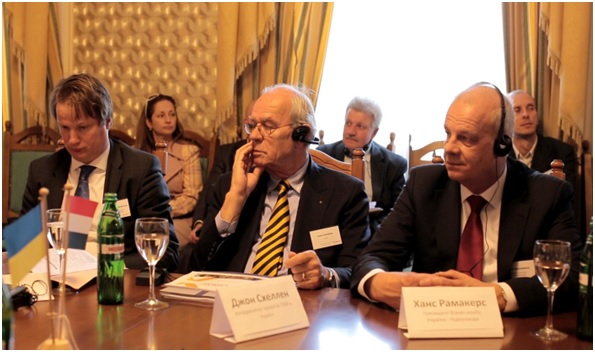In Ukraine, representatives of the government, independent experts and the public call the Association Agreement with the European Union “a roadmap for reform,” or a “reform plan,” which is important for Ukraine’s survival and the improvement of life.
On June 27, when signing the Agreement in Brussels, this was stated by President Petro Poroshenko in his speech. On November 1 he congratulated his compatriots with the beginning of the Agreement’s execution (excluding the part which regards the formation of the free-trade zone). The President wrote this on his Twitter account.
“Friends, starting today, we are temporarily enacting the Association Agreement between Ukraine and the EU. Congratulations!” Poroshenko wrote.
The President also noted that the execution of the Agreement will encourage “flourishing and stability” in Ukraine and Europe in general. This was stated in a special letter written by the presidents of Ukraine, the EU Council and the EU Commission.
However, experts caution Ukrainians against euphoria: as the Agreement only gives Ukraine an opportunity for change, however, Ukraine should be the one to actually make these changes. As head of international fund Maidan of Foreign Affairs Bohdan Yaremenko told Radio Liberty, the document signed by the leaders of Ukraine and the EU aims to establish certain rules.
“The essence of the Association Agreement between Ukraine and the European Union lies in the fact that as of today, it is the single plan for reform in Ukraine. And this is a reform plan which has been accorded at the highest level on part of both Ukraine and the European Union. The document outlined clear criteria of changing the political system, the legal system, how to change the industry. It also states how to change the economic and finance sectors of our state. This plan is, on the one hand, quite flexible (as the sides may reexamine the success of executing the reform plan at any moment and thus either extend the term of its execution or document the end of reforms), and on the other hand it has clear deadlines. Ukraine has no other such program, such reform plans. This is what Ukraine needs to survive,” Yaremenko noted.
Expert: the agreement encourages development of the state and the people
Economist, former Minister of Economics (the first after the Revolution of Dignity) Pavlo Sheremeta is convinced that the execution of the Agreement will not only encourage reform, but the usage of Ukraine’s industrial potential. According to Sheremeta, we can talk about modernizing the industrial sector, about growth in private business initiative (which will allow to form a European standard middle class), thus form a modern job market etc. But Sheremeta emphasizes that it is important to study European life and the European market.
“I call this, if we are to use football metaphors, the League of European Champion. The League is drastically different from the United Championship of the CIS. The EU is a much bigger market, a much broader market. In order to take advantage of the market’s volume, we have to understand this market, know it and therefore we have to study it. And this has a social aspect as well. It lies in that we have to go outside of our comfort zone, study and understand this European market. Of course, we have to agree with Europe on the visa-free regime, study exchange, job exchange. All of this is necessary to understand it better and comprehend what integration into the EU means,” the expert noted to Radio Liberty.
The process of studying and using European socioeconomic and educational standards is quite complex and painful. However, the experience of contemporary Poland evidences the rightness of these steps, Sheremeta thinks.
Expert: the Agreement will reinforce Ukrainian security
Expert in issues of energy security Mykhaylo Honchar thinks that Ukraine’s membership in the European Energy Community (starting February 1, 2011), like the execution of the Association Agreement with the EU starting November 1 of the current year will serve to reinforce the state’s energy security. This will allow to decrease Ukraine’s dependence on Russian gas and will encourage modernization on the European fuel market, the expert thinks.
“Membership in the energy community and the beginning of the execution of the Association Agreement between Ukraine and the EU allow us, according to European demands, to diversify fuel supplies. In our case, I mean intensifying cooperation with our European neighbors regarding reverse gas supplies on part of European companies. In this way our European partners can encourage solving the problem of our gas dependence on Russian supplies,” Honchard told Radio Liberty.
Experts also claim that Ukraine’s attitude towards integration into Europe, the implementation of the Association Agreement, has become more practical. The public is interested in the practical results of the document: battle against corruption, lustration, support for business, increase of local government powers etc. At the moment Ukrainians hope that the new government will execute the agreement and are ready to encourage and control its actions.
Ukrainians are defenseless against Russia without the FTZ?
However, the execution of the Association Agreement at the moment does not regard the part that enacts the formation of the free-trade zone between Ukraine and the European Union. The decision to postpone the implementation of this part of the agreement was explained in Kyiv and Brussels by the necessity to accord some of the points, which was asked for by a third-party – Russia. On September 12, at the end of the triangular Ukraine – EU – Russia meeting, its participants claimed that the temporary implementation of the free-trade zone between Ukraine and the EU was postponed until December 31, 2015, as asked for by the Russian side. Kyiv-based journalist Serhiy Sydorenko wrote in European Pravda just how dangerous such hesitation may be for the Ukrainian economy.
According to him, on the one hand we can speak of a ‘trade ceasefire’ with Russia, and on the other, Russia is gaining from the postponement of the free-trade zone between Ukraine and the European Union. This will allow the Kremlin to pressure Ukraine and possibly drag it into the Customs Union, Sydorenko noted.








